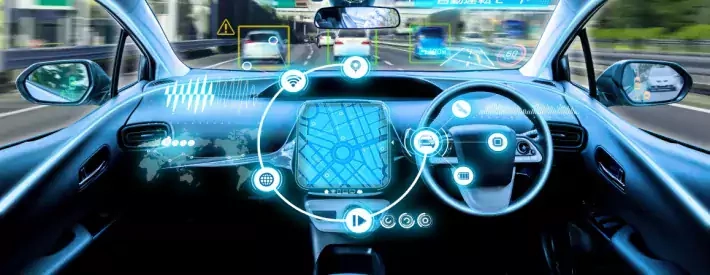How the UK is leaping forward with the Automated Vehicles Bill

As automotive begins to harness new technologies, the King’s Speech recently set out how the UK aims to become a world leader.
In a bold stride towards a transport revolution, the UK's announcement of the Automated Vehicles Bill marks a pivotal moment in both legislative adaptation and the burgeoning automated vehicle industry. The leap, as detailed in the King's Speech, is not only a testament to the UK's ambition but also underpins the country's commitment to pioneering a future where roads are safer, and transportation is more accessible and efficient.
The bill, at its core, is an inflection point for the automated vehicle sector, aiming to establish the UK as a global leader in the high-tech, high-growth industry. With a projected market value of £42 billion and the creation of 38,000 skilled jobs by 2035, the Automated Vehicles Bill is more than just a legal framework—it’s a vehicle for economic growth, tapping directly into the Prime Minister’s priority to stimulate the economy.
Automated vehicles promise to significantly reduce the 88% of road accidents currently involving human error, offering not just improved safety but also cost savings and a reduction in fatalities. It’s hoped the technology will provide mobility for all, enhancing life quality and contributing to productivity as people navigate to work or school with newfound ease.
Driving a futuristic vision
The Automated Vehicles Bill positions the UK as a magnet for international investors, with 70% of global auto sector companies sourcing self-driving technologies from British enterprises. The nation's self-driving vehicle sector has already attracted £475 million of direct investment, generating 1,500 new jobs between 2018 and 2022.
The legislation draws on the international thought leadership from the Law Commissions' review, setting stringent safety standards for self-driving vehicles. It stipulates that only vehicles capable of adhering to all road traffic rules without human supervision can be classified as self-driving. The Department for Transport will have new powers to authorise and ensure compliance with these standards, holding companies accountable for safety, imposing sanctions, or even criminal offences in severe cases.
Moreover, the bill provides a legal safeguard for users, immunising them from prosecution when the vehicle is in self-driving mode. It also obliges companies to report safety-related data, adhering to British laws and other relevant legislation, such as data protection and environmental standards.
This transition, however, is not just about technology; it's intrinsically linked to skills. Realising this ambition requires a robust skills framework. The industry needs support to upskill the existing workforce, improve retention rates, and fundamentally reshape the understanding of the motor industry as a dynamic technology sector.
To this end, the sector requires a concerted effort to foster a skilled workforce equipped to tackle the unique challenges and opportunities presented by automated technologies. This means that educational institutions, industry players, and the government must collaborate to develop targeted training programs and career pathways that reflect the evolving needs of this high-tech industry.
The Automated Vehicles Bill is not just about the cars of the future; it's about the future of the UK's economy and its workforce. It represents a comprehensive approch to integrate the technological advancements of automated vehicles into society while safeguarding public interest and safety.
As we embark on this exciting journey, it’s crucial to ensure that the workforce is ready to meet the demands of this transformation, ensuring that the UK remains at the forefront of this global transport revolution.
Hayley Pells is Policy and Public Affairs Lead at the Institute of the Motor Industry





